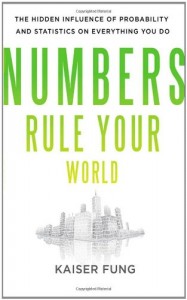 The coronavirus “pandemic” feels like some kind of turning point for humankind in terms of individual autonomy. I perceive that the response to the emergence of the virus is asymmetrical to its actual health threat, and this is leading people around the world to relinquish their individual rights on a scale I have never seen before. The coronavirus “pandemic” feels like some kind of turning point for humankind in terms of individual autonomy. I perceive that the response to the emergence of the virus is asymmetrical to its actual health threat, and this is leading people around the world to relinquish their individual rights on a scale I have never seen before.
This post discusses this event (a sign in semiotics) within the context of privacy and autonomy in the digital age. My discussion is not a conspiracy theory as I find those pointless and disempowering. I link various technology and social happenings and place their significance within the context of human nature. I also reference some neuroscience to help you understand the situation at a new level. I conclude with suggestions for action.
[…]
 Improving business impact of technical writing and UX writing outlines how to increase the business value of two writing disciplines that directly affect customer experience. Improving business impact of technical writing and UX writing outlines how to increase the business value of two writing disciplines that directly affect customer experience.
Before diving into that, the backstory shares how I developed an unusual point of view while practicing service design and experiential social media—and how this led me to technical writing and UX writing.
Then the main event: I offer five ways organizations can substantially improve the business impact of technical writing and UX writing.
[…]
 CSRA milestones reflects on my first ten years of experiential social media, seen through the eyes of clients I’ve served. I’ll share what I learned about what outcomes we got in each engagement as well as how it happened that I developed and pioneered experiential, which if a repeatable process for developing trust and profit at scale. CSRA milestones reflects on my first ten years of experiential social media, seen through the eyes of clients I’ve served. I’ll share what I learned about what outcomes we got in each engagement as well as how it happened that I developed and pioneered experiential, which if a repeatable process for developing trust and profit at scale.
If you’d like to watch this post instead, just click the thumbnail button.
[…]
 Technologies Enabling the Police State describes the inevitability of pervasive surveillance, how it’s developing, and how we can act now to maintain the maximum degree of freedom. This is Part1 of a series on autonomy in the digital age. Personal and Collective Actions to Maintain Autonomy (Part2) is a how-to post, while Police State Scenarios (Part3) discusses ways that collective permanent loss of autonomy could unfold. Technologies Enabling the Police State describes the inevitability of pervasive surveillance, how it’s developing, and how we can act now to maintain the maximum degree of freedom. This is Part1 of a series on autonomy in the digital age. Personal and Collective Actions to Maintain Autonomy (Part2) is a how-to post, while Police State Scenarios (Part3) discusses ways that collective permanent loss of autonomy could unfold.
Despite their grim titles, these posts are not intended as doomsday writings, and I don’t intend to say that I think a police state is being developed intentionally. My conclusion is rather that the technologies of mass control are developing rapidly, and the risk is significant that some group will seize control of them in the foreseeable future. I think you’ll find some of their points surprising, perhaps even breakthrough. Please let me know in comments!
I did not want to write this post, and I doubt that you want to read it; however, as I explain here, we’re at a pivotal point of human history. We are rapidly losing our […]
10 Detailed Case Studies + Big Data & Analytics’ New Digital Divide + How to Think Like a Data Scientist Book Review: Numbers Rule Your World/Kaiser Fung
 [UPDATED] Step inside a data scientist’s mind, and learn why probability is the key to profit and how it’s the key to understanding and using big data for better decision making. This fascinating and useful book clearly shows how people misunderstand probability and misuse statistics—and therefore big data—and how the knowledge gap leads to faulty models, thinking and decisions. New winners and losers are emerging in the digital social and big-data age. A new digital divide, people who think like data scientists and use probability to support decision making—and everyone else. The data science group will outperform, and Fung shows how creative, fun and useful data science is. [UPDATED] Step inside a data scientist’s mind, and learn why probability is the key to profit and how it’s the key to understanding and using big data for better decision making. This fascinating and useful book clearly shows how people misunderstand probability and misuse statistics—and therefore big data—and how the knowledge gap leads to faulty models, thinking and decisions. New winners and losers are emerging in the digital social and big-data age. A new digital divide, people who think like data scientists and use probability to support decision making—and everyone else. The data science group will outperform, and Fung shows how creative, fun and useful data science is.
This book is a perfect twin to Duncan Watts’ Everything Is Obvious* Once You Know the Answer, which exposes how common sense pervades management decisions and failure. I shall refer to several specific connections between […]
Digital Transformation’s Personal Issue reveals personal treatment to be the key to breakthrough customer experience, and it shows how digital social spaces enable Chief Digital Officers to use personal treatment to create more profit. Before they arrive, though, they need to lead their organizations through the Personal Issue. 
The Personal Issue refers to a perceived conflict between empowered customers and profit-starved companies. Digital social technologies are enabling customers to “re-personalize” business and society because their online interactions among themselves are personal, which is changing their expectations of all interactions.
However, businesses resist treating customers personally because they fear cost and inefficiency. They don’t understand the digital social economics of treating customers personally online, at scale.
Meanwhile, the missions of chief digital officers (CDOs) and chief customer officers (CCOs) are creating bold new “customer experience” and profits by using digital technologies to transform organizations, brands and businesses. They will fulfill their missions far more quickly and completely by using the key.
[…]
 Big Data in Healthcare and Education shares how U.S. and UK government agencies used big data & analytics to help evolve national policy and outcomes. These examples are useful because they show the range of big data projects; the U.S. example is simple, yet it has profound impact on the health of the citizenry and therefore on the economy. The UK example is more involved and shows in depth how organizations can use big data to address expensive programs that are full of unknowns—like national education. Big Data in Healthcare and Education shares how U.S. and UK government agencies used big data & analytics to help evolve national policy and outcomes. These examples are useful because they show the range of big data projects; the U.S. example is simple, yet it has profound impact on the health of the citizenry and therefore on the economy. The UK example is more involved and shows in depth how organizations can use big data to address expensive programs that are full of unknowns—like national education.
This post shares my notes from a recent Deloitte Dbriefs webcast, Analytics in Action, which you may watch and download its slides. The webcast was moderated by Steve Dahl, and David Weir and Haris Irshad presented the examples.
[…]
![Catch Social Media Leaders [Social Business Team Building] case3](http://rollyson.net/wp-content/uploads/2013/04/sbtb3.png) [UPDATED] Catch Social Media Leaders applies to organizations with very conservative cultures—banks, insurers, healthcare, governments, B2B firms, and professional services to name a few—that have sat on the sidelines and now feel nervous because they are so far behind. In 2013, digital marketing and firm executives are thinking about building their internal teams to provide more continuity and scale, so here I’ll show how firms can use strategy and best practices to outperform rivals across the social business life cycle. [UPDATED] Catch Social Media Leaders applies to organizations with very conservative cultures—banks, insurers, healthcare, governments, B2B firms, and professional services to name a few—that have sat on the sidelines and now feel nervous because they are so far behind. In 2013, digital marketing and firm executives are thinking about building their internal teams to provide more continuity and scale, so here I’ll show how firms can use strategy and best practices to outperform rivals across the social business life cycle.
Catch Social Media Leaders is the third of the five-part social business team building series The series describes team building in the context of various scenarios in which firms build social business capability, step by step, while investing wisely. Social Business Strategy Use Cases outlines and compares all five use cases while Social Business Team Building gives general guidance for how to create social business teams as well as recommendations for what characteristics leaders have, so I recommend reading them, too.
[…]
It’s more obvious than ever that the same crimes are committed (think “calamity,” not “Katrina”), but perpetrators switch interfaces. For example, my experience of the London scam happened via Facebook chat. Abstract up from the communications process or the subject and you’ll be more aware of the patterns. […]
CDC’s social media experience shows how powerful social business can be when the organization is aligned with peer-to-peer sharing (word of mouth). Moreover, budget limits and their public focus compel them to rely people to educate each other with CDC information. […]
|
|
 The coronavirus “pandemic” feels like some kind of turning point for humankind in terms of individual autonomy. I perceive that the response to the emergence of the virus is asymmetrical to its actual health threat, and this is leading people around the world to relinquish their individual rights on a scale I have never seen before.
The coronavirus “pandemic” feels like some kind of turning point for humankind in terms of individual autonomy. I perceive that the response to the emergence of the virus is asymmetrical to its actual health threat, and this is leading people around the world to relinquish their individual rights on a scale I have never seen before.
 Improving business impact of technical writing and UX writing outlines how to increase the business value of two writing disciplines that directly affect customer experience.
Improving business impact of technical writing and UX writing outlines how to increase the business value of two writing disciplines that directly affect customer experience. CSRA milestones reflects on my first ten years of experiential social media, seen through the eyes of clients I’ve served. I’ll share what I learned about what outcomes we got in each engagement as well as how it happened that I developed and pioneered experiential, which if a repeatable process for developing trust and profit at scale.
CSRA milestones reflects on my first ten years of experiential social media, seen through the eyes of clients I’ve served. I’ll share what I learned about what outcomes we got in each engagement as well as how it happened that I developed and pioneered experiential, which if a repeatable process for developing trust and profit at scale. Technologies Enabling the Police State describes the inevitability of pervasive surveillance, how it’s developing, and how we can act now to maintain the maximum degree of freedom. This is Part1 of a series on autonomy in the digital age. Personal and Collective Actions to Maintain Autonomy (Part2) is a how-to post, while Police State Scenarios (Part3) discusses ways that collective permanent loss of autonomy could unfold.
Technologies Enabling the Police State describes the inevitability of pervasive surveillance, how it’s developing, and how we can act now to maintain the maximum degree of freedom. This is Part1 of a series on autonomy in the digital age. Personal and Collective Actions to Maintain Autonomy (Part2) is a how-to post, while Police State Scenarios (Part3) discusses ways that collective permanent loss of autonomy could unfold. [UPDATED] Step inside a data scientist’s mind, and learn why probability is the key to profit and how it’s the key to understanding and using big data for better decision making. This fascinating and useful book clearly shows how people misunderstand probability and misuse statistics—and therefore big data—and how the knowledge gap leads to faulty models, thinking and decisions. New winners and losers are emerging in the digital social and big-data age. A new digital divide, people who think like data scientists and use probability to support decision making—and everyone else. The data science group will outperform, and Fung shows how creative, fun and useful data science is.
[UPDATED] Step inside a data scientist’s mind, and learn why probability is the key to profit and how it’s the key to understanding and using big data for better decision making. This fascinating and useful book clearly shows how people misunderstand probability and misuse statistics—and therefore big data—and how the knowledge gap leads to faulty models, thinking and decisions. New winners and losers are emerging in the digital social and big-data age. A new digital divide, people who think like data scientists and use probability to support decision making—and everyone else. The data science group will outperform, and Fung shows how creative, fun and useful data science is.
 Big Data in Healthcare and Education shares how U.S. and UK government agencies used big data & analytics to help evolve national policy and outcomes. These examples are useful because they show the range of big data projects; the U.S. example is simple, yet it has profound impact on the health of the citizenry and therefore on the economy. The UK example is more involved and shows in depth how organizations can use big data to address expensive programs that are full of unknowns—like national education.
Big Data in Healthcare and Education shares how U.S. and UK government agencies used big data & analytics to help evolve national policy and outcomes. These examples are useful because they show the range of big data projects; the U.S. example is simple, yet it has profound impact on the health of the citizenry and therefore on the economy. The UK example is more involved and shows in depth how organizations can use big data to address expensive programs that are full of unknowns—like national education.![Catch Social Media Leaders [Social Business Team Building] case3](http://rollyson.net/wp-content/uploads/2013/04/sbtb3.png) [UPDATED] Catch Social Media Leaders applies to organizations with very conservative cultures—banks, insurers, healthcare, governments, B2B firms, and professional services to name a few—that have sat on the sidelines and now feel nervous because they are so far behind. In 2013, digital marketing and firm executives are thinking about building their internal teams to provide more continuity and scale, so here I’ll show how firms can use strategy and best practices to outperform rivals across the social business life cycle.
[UPDATED] Catch Social Media Leaders applies to organizations with very conservative cultures—banks, insurers, healthcare, governments, B2B firms, and professional services to name a few—that have sat on the sidelines and now feel nervous because they are so far behind. In 2013, digital marketing and firm executives are thinking about building their internal teams to provide more continuity and scale, so here I’ll show how firms can use strategy and best practices to outperform rivals across the social business life cycle.